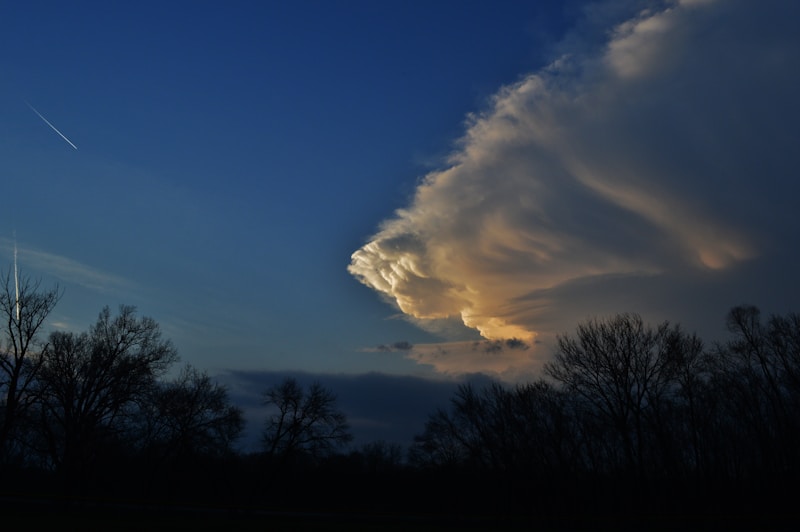The Impact of Weather on Outdoor Venues: An In-Depth Analysis
The Impact of Weather on Outdoor Venues: An In-Depth Analysis
Understanding Weather's Influence on Outdoor Events
Outdoor venues, ranging from parks and stadiums to festivals and wedding venues, often rely heavily on favorable weather conditions to ensure successful events. However, unpredictable weather patterns can significantly impact the attendance, experience, and overall success of outdoor activities. This article will delve into the myriad ways weather influences outdoor venues, present data through tables, and provide actionable strategies for event organizers to mitigate adverse weather effects.
The Role of Weather Conditions
Weather conditions play a crucial role in the planning and execution of outdoor events. Here's a breakdown of how various weather elements can affect outdoor venues:
| Weather Element | Impact on Outdoor Events |
| Rain | Can deter attendees and damage equipment. |
| Heat | Excessive heat can lead to health risks for attendees, affecting their enjoyment. |
| Wind | Strong winds can disrupt sound systems and pose safety hazards. |
| Cold | Cold weather often discourages attendance and may require special accommodations. |
Types of Outdoor Venues Affected by Weather
Different outdoor venues experience various impacts due to weather conditions. Below are some prominent types of venues that are significantly affected:
1. Stadiums and Sports Facilities
Stadiums hosting outdoor sports events are some of the most vulnerable to weather disruptions. Rain can lead to delays or cancellations, while extreme heat or cold can impact players’ and spectators’ comfort levels. For instance, a National Football League (NFL) game played in late November in New York may experience significant cold, potentially affecting attendance and the overall game atmosphere.

2. Festivals and Concerts
Festivals and music concerts typically draw large crowds, and adverse weather can lead to significant financial losses if not properly planned for. For example, the infamous mudslides at the Woodstock Festival in 1999 exemplify how rain can transform a joyful gathering into a logistical nightmare.
3. Wedding Venues
Outdoor weddings are intimate events where couples dream of perfect weather conditions. Unfortunately, unforeseen weather changes can force last-minute adjustments in decorations, seating arrangements, and even venue location. For instance, a couple planning a beach wedding in California may face unexpected fog or wind challenges that could alter their preparations.
Strategies to Mitigate Weather Challenges
Given that weather plays such a pivotal role in outdoor venue operations, planning for potential weather-related challenges is paramount. Below are some strategies that event organizers can employ:
1. Weather Forecasting and Monitoring
Before finalizing any outdoor event, it is critical to monitor weather forecasts as the event date approaches. Utilizing reliable weather services will provide insights into expected conditions, enabling organizers to make informed decisions. Advanced technologies, such as weather apps and sites providing hourly forecasts, can be invaluable tools.
2. Contingency Plans
Having a contingency plan is essential. Organizers should consider alternate locations or backup indoor venues in case of adverse weather conditions. Renting tents or canopies can also provide immediate shelter from rain or strong sunlight.
3. Communication with Attendees
Transparency with attendees regarding weather preparations is crucial. Regular updates via social media, emails, or websites can keep attendees informed about any changes, which helps in managing expectations and coordinating logistics.
4. Climate-Appropriate Amenities
Providing climate-related amenities can enhance attendees' comfort levels. For instance, offering misting fans during hot weather or providing blankets for cold events can improve the overall experience, even in less-than-ideal conditions.
Conclusion: Adapting to Nature's Uncertainty
Outdoor venues are undeniably affected by weather, with consequences ranging from attendance rates to overall event success. By understanding the impact of weather on outdoor venues, such as stadiums, concert venues, and wedding sites, and adopting effective strategies to mitigate these challenges, organizers can enhance the likelihood of hosting successful events.
To successfully navigate these weather challenges, event planners must remain proactive by closely monitoring weather forecasts, maintaining open lines of communication with attendees, and developing contingency plans. By doing so, they can transform potentially disruptive weather conditions into manageable components of outdoor event planning. Weather shouldn’t be a reason to deter outdoor experiences; with the right planning and strategies, it can be artfully woven into the fabric of outdoor venues.
In conclusion, understanding the effects of weather on outdoor venues is crucial. Staying adaptable, informed, and communicative helps ensure that the events go off smoothly, rain or shine.
